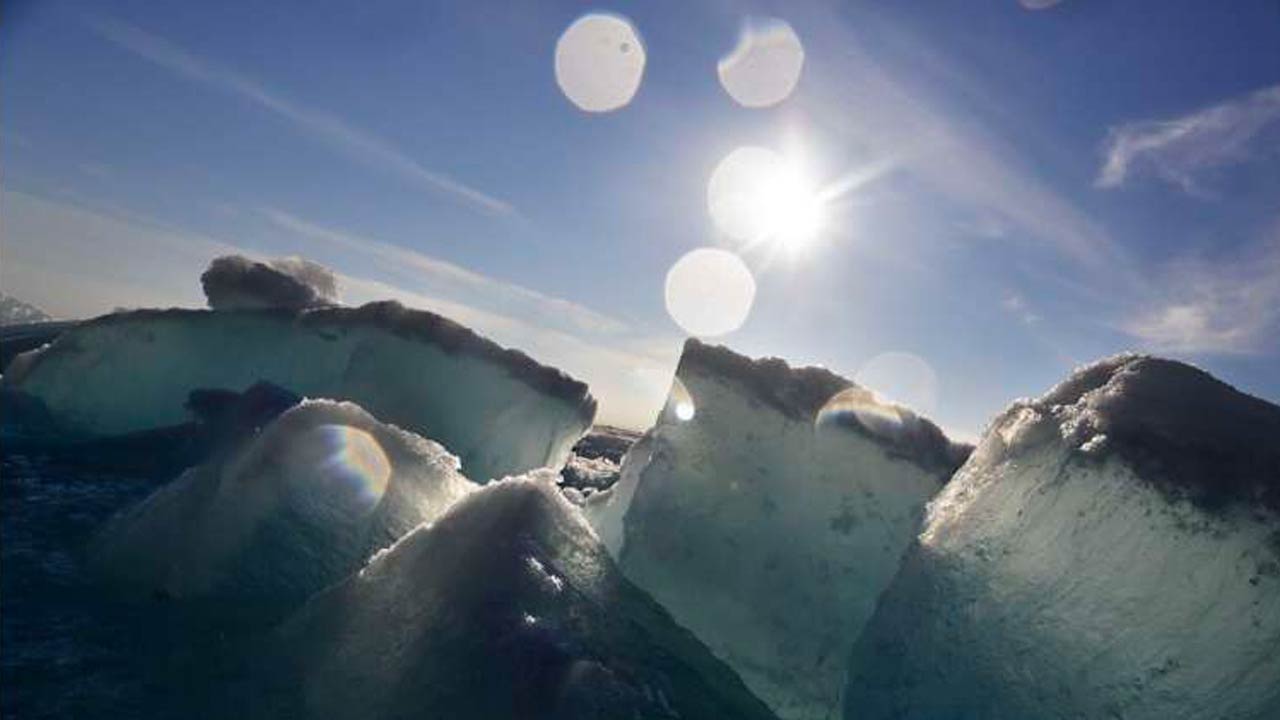The research conducted by scientist Twila Moon in Greenland has shown that the North Pole is warming 3 times faster than the rest of the world, and therefore the ice in the region is melting much faster than in previous years. Researchers underlined that this change in the North Pole will negatively affect the whole world.
Especially in recent years, our world has faced climate crisis We hear a lot about it. We see climate change as the main cause of many natural disasters. Being able to hear this frequently will at some point weaken our sensitivity to the subject. to decrease and this process to our normalization may cause. However, managing this crisis, which is the first time we are faced with this crisis and whose future is full of uncertainties, we have to We should not stray from the idea. The changes we experience are a result of the modern age, and we can actually make this process better even by changing our personal preferences. The solution of the issue definitely requires political steps, but these steps will undoubtedly begin thanks to us. Unless individuals take action, a social change cannot take place. won’t happen it’s good to remember.
Research conducted by the Ice Scientist Twila Moon in Greenland, due to climate change on Earth. what we lost It made us come face to face once again with the facts about it. The North Pole relative to the rest of the Earth, researchers three times faster announced that he had melted. To know that the researches made before the news are the harbingers of possible disasters in the future, and to know what is happening in our world and fighting the crisis for How much does it cost to make even small changes in daily life? effective I would like to remind you that it is possible.
The North Pole is now melting 3 times faster
RELATED NEWS
Can It Really Save Our World? COP26 Climate Conference in All Its Lines
The Arctic layer, formed by snow and ice, acts as a blanket covering the surface of the Arctic. This layer reflects sunlight and heat. Melting sea ice in summer due to seasonal conditions has increased more than usual in recent years. faster it’s melting. In a study conducted by the Ice Scientist Twila Moon in Greenland, arctic ice sheets and glaciers are shrinking, and some glaciers are already that there is no explained. Surveys of the Arctic Monitoring and Evaluation Program between 1971 and 2019, the surface of the Arctic 3 times faster than the rest of the world you’re warming up revealed.
In this region, which is called the Last Ice Zone, this year, there has been more than expected growth. melting it happened. In Siberia, the air temperature reached 38 degrees Celsius, forest fires broke out in the Arctic. Scientists announced that the powerful greenhouse gas release has thawed the icy soil (Permafrost) that holds the Arctic methane. Moon, a researcher at the US National Snow and Ice Data Center, was surprised by the sight he saw when he returned to Greenland. “already the things we lost while mourning for He said he found it.
This change will affect the whole world

In the next 15-20 years, scientists predict that sea ice in the Arctic will increase during the summer months. will melt completely is thinking. Waleed Abdalati, the scientist who heads the environmental program at the University of Colorado, “It is very dangerous to encounter the melting of sea ice in the Arctic in the summer, this is what human civilization has done before. never met Something” said. Abdalati, who is also a former NASA employee, said that this change has a role in the climate system. sledgehammer effect stated that he would.
RELATED NEWS
$177 Million Climate Study from NASA: Tropical Storms and Their Impacts to Examine
Melting ice sheets are also affecting rising sea levels. This of course isn’t just a problem for people close to the North Pole, for the whole world poses a serious danger. Scientists warned that these changes could result in floods, droughts or severe wildfires or extreme weather events.
